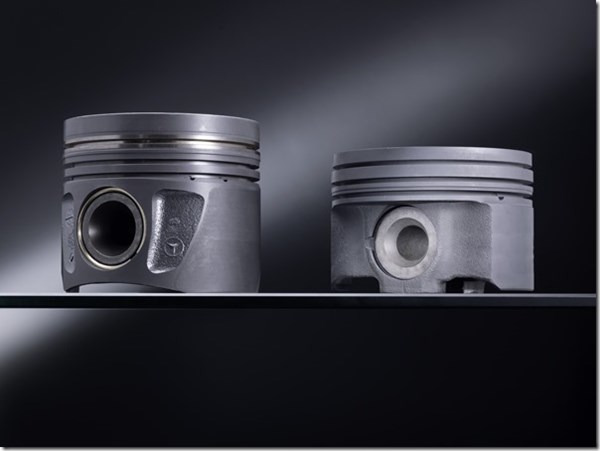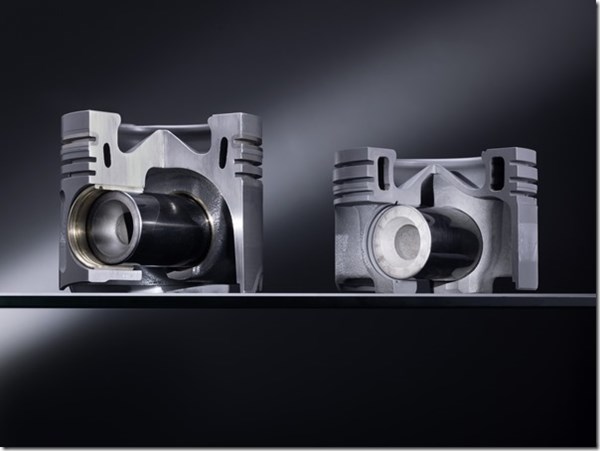Steel Pistons for Passenger Car Diesels
Although steel producers seem to be taking it on the chin of late from aluminum, word out of Stuttgart ought to be somewhat encouraging to them.
#aluminum
Although steel producers seem to be taking it on the chin of late from aluminum, word out of Stuttgart ought to be somewhat encouraging to them. That is, Mercedes has announced that starting next month, steel pistons will be installed in the Mercedes-Benz E 350 BlueTEC engine.
Previously, aluminum pistons were used in the diesel engine.
And now it is going to steel.

The aluminum piston is on the left and the steel on the right. Turns out for diesels, smaller can be better.
While you might think that steel would be the norm for diesel engines, where there is tremendous pressure involved in the compression ignition, that is the case for commercial vehicles, but not cars, where aluminum pistons have come to the fore.
But Mercedes engineers started examining steel and determined that there is a potential benefit of using steel pistons within aluminum engine blocks, where the bores are coated by NANOSLIDE material, a nano-crystalline iron coating (also developed by Mercedes).
Because the forged steel pistons are higher in strength than a comparable amount of aluminum, they were able to make the pistons smaller: for the V6 in the E 350, the steel piston is 58.6 mm high versus 71.6 mm for an aluminum piston, yet the steel piston lends itself to application even if—or perhaps when—there is an increase of peak pressures inside the engine.

It was necessary to redesign the piston to go from aluminum (left) to steel (right).
There is less thermal expansion of steel compared with aluminum (the steel expands only about a quarter the amount that the aluminum does), so the gap between the cylinder wall and the piston is reduced as far as the first piston ring. A benefit of this is that there is a reduction in pollutants and emissions.
Joachim Schommer, head of basic engine development at Mercedes-Benz sees further application of steel pistons in the diesels that the vehicle manufacturer produces, such as its four-cylinder diesel (used, for example, in the E 250). Schommer said: “We are assuming that pistons made of steel will in future also be widespread use in passenger car diesel engines.”
RELATED CONTENT
-
Jeeps Modified for Moab
On Easter morning in Moab, Utah, when the population of that exceedingly-hard-to-get-to town in one of the most beautiful settings on Earth has more than doubled, some people won’t be hunting for Easter eggs, but will be trying to get a good look at one of the vehicles six that Jeep has prepared for real-life, fast-feedback from the assembled at the annual Easter Jeep Safari.
-
Lotus Is Light
Although there aren’t a huge number of Lotus vehicles rolling around in the U.S.—according to Left-Lane.com, in 2015 Lotus sold 80 cars in the U.S., a number so low that there is not much that puts it into context (e.g., there were 1,009 Lamborghinis sold in the U.S.)—but small numbers is something that the Hethel, U.K.-based sports car manufacturer is working toward—at least when it is comes to lowering the mass of its products.
-
Aluminum Sheet for EV Battery Enclosure
As the number of electric vehicles (EVs) is about to increase almost exponentially, aluminum supplier Novelis is preparing to provide customers with protective solutions


.jpg;width=70;height=70;mode=crop)






